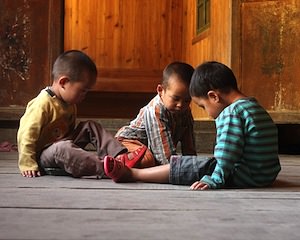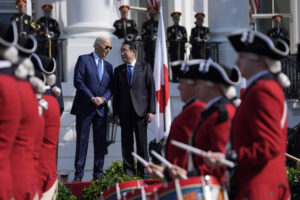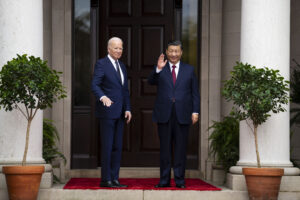China to End ‘Re-Education’ Camps, Relax One-Child Rule
Wrapped up inside planned economic reforms, the Chinese government said it will change two signature policies that have stood as significant intrusions of the state into people’s private lives and drawn condemnations from world human rights organizations.
China’s Communist Party announced Friday that it plans to change two draconian policies — its one-child rule and use of labor camps — that have long stood as international symbols of its power to both intrude deeply into the lives of its citizens, and intimidate through harsh summary punishments without judicial review.
The decision was included in an economic restructuring aimed at increasing market competition in some sectors, encourage more private participation in the country’s finance sector, and give farmers better protections over land confiscations, a significant problem as the nation’s massive cities continue to sprawl into neighboring agricultural areas.
But the ending of the one-child rule for urban families, and the labor camps, came as a surprise, and drew international attention. But it also came without a timeline, which leaves whether it will actually happen an open question. According to The New York Times:
The party leaders confirmed an announcement made earlier this year, and then abruptly retracted, that they intend to abolish re-education through labor, which since the 1950s has empowered police authorities to imprison people without any real judicial review. Experts and officials have debated whether to adjust or abolish the system of camps since the 1980s. Now abolition is closer.
“Abolish the system of re-education through labor,” said the decision, which proposed expanding community correction to partly replace the system. The document gives no date for achieving that, or for introducing the changes to family planning policy.
Amnesty International, though, argued that the ending of the labor camps would be just a cosmetic change in an incredibly harsh and inhumane prison system. The group explains:
“‘Re-education through labour’ camps are just one piece in the intricate network of arbitrary detention centres used by the Chinese government to punish individuals who exercise their human rights in ways the authorities find threatening,” said Corinna-Barbara Francis, China researcher at Amnesty International.
“While abolishing the RTL system is a big step in the right direction, the reality is that the authorities are finding new ways to punish the same types of people, including sending them to other types of arbitrary detention, such as the so-called ‘brain washing centres’ and ‘black jails.’”
“Without a fundamental change in policies that drive the punishment and targeting of individuals such as petitioners, human rights activists and Falun Gong members, there is the very real risk that the Chinese authorities will abolish one system of arbitrary detention only to expand the use of others.” For years, the Chinese authorities have used a sprawling network of upwards of 300 RTL camps to detain hundreds of thousands of dissidents. Many individuals are sent multiple times to RTL and spend many years in these camps, without charge or trial.
And the Chinese government has protected the secrecy of that network with a vengeance. This summer, it detained journalist Du Bin for more than a month and he could still face charges. His crime? Documenting conditions in the prison camps.
—Posted by Scott Martelle.
Your support matters…Independent journalism is under threat and overshadowed by heavily funded mainstream media.
You can help level the playing field. Become a member.
Your tax-deductible contribution keeps us digging beneath the headlines to give you thought-provoking, investigative reporting and analysis that unearths what's really happening- without compromise.
Give today to support our courageous, independent journalists.






You need to be a supporter to comment.
There are currently no responses to this article.
Be the first to respond.